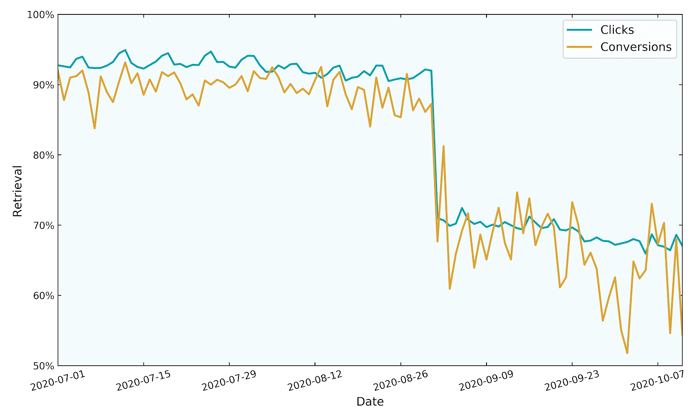Updated on July 12, 2023 | 2 minute read | Laura Burton
Google Ads recently announced that from the 1st of September, it would be limiting search term reporting – citing privacy as the reason for this. The notice said “We are updating the search terms report to only include terms that were searched by a significant number of users. As a result, you may see fewer terms in your report going forward” .
To put it simply, advertisers will have less insight into which search terms trigger their ads.
Here is the statement that was given to Search Engine Land by a Google Spokesperson
“In order to maintain our standards of privacy and strengthen our protections around user data, we have made changes to our Search Terms Report to only include terms that a significant number of users searched for. We’re continuing to invest in new and efficient ways to share insights that enable advertisers to make critical business decisions,” a Google spokesperson told Search Engine Land Wednesday”
We looked into just how ‘significant’ the removal would be, with a few agencies saying it would only be around a couple of conversions. In actual fact, based on hundreds of accounts we were able to establish that on average, across diverse retail verticals it’s actually 24% of search terms, and 26% of search terms with conversions that are no longer learned.
The graph below shows the data we took from one of our clients, as you can see from the 1st of September there are significantly less ST retrievals. The slightly lower Search Term & Conversion retrieval in the last couple of days is down to the simple fact of late attribution -which in itself is a factor to take account of in bidding, but not the purpose of this investigation.

Graph from Bidnamic clients, highlighting a decrease in ST retrieval.
Verticals with many SKU variations, such as fashion retailers, will be hit more severely, as up to 35% of click search term data will be lost due to the long tail search queries that are driven by the different variants (e.g, shirt sizes and colours). These long-tail queries will be ones that are hidden by Google. However, verticals without a large amount of SKU variations will only lose around 20% of their search term data and some verticals such as technology/electronics will only lose around 15%.
Google cites ‘privacy’ as the reason for this update to prevents advertisers from using personally identifiable information (PPI), however, there are hundreds of thousands of low-volume queries that present no risk. This loss of data could have a huge financial impact on advertisers – if you can’t see it, you can’t learn from it.
Bidnamic uses a unique purchase intent engine, which means to an extent we are able to predict search terms and maximise revenue on valuable search queries. Now more than ever, it’s important that retailers are using technologies like Bidnamic to create an unfair advantage against their competitors.
Bidnamic is not for everyone, but if you would like to see how well we fit, please book a call with us.

